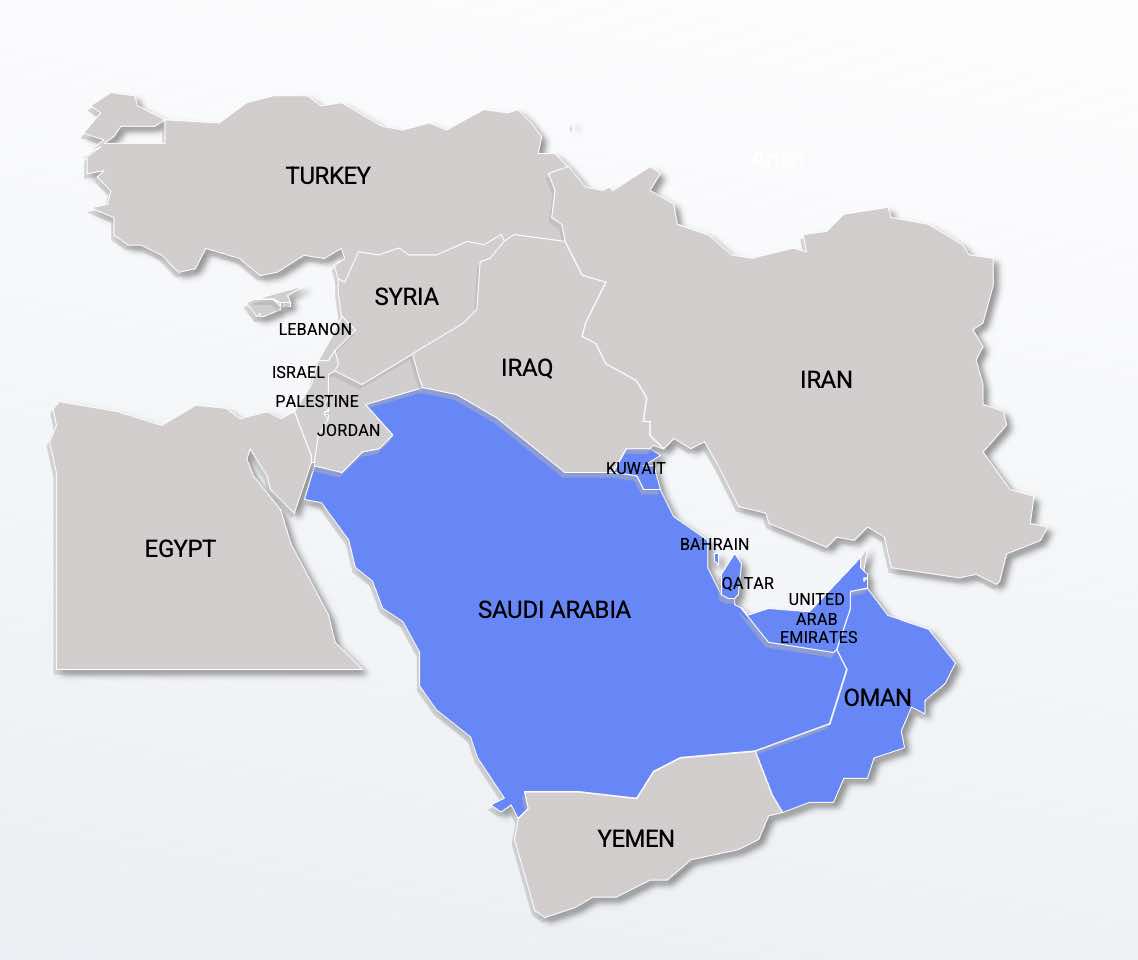Water in Crisis - Arab Gulf

Water resource management is a pressing issue in the Arab Gulf states due to their arid climate and high levels of water demand. The Arab Gulf states include Bahrain, Kuwait, Oman, Qatar, Saudi Arabia, and the United Arab Emirates.
The primary sources of water in the Arab Gulf states are groundwater and desalinated seawater. The high levels of water consumption in the Arab Gulf states are partly due to the use of water for irrigation and agriculture, which accounts for a significant portion of water demand. Additionally, population growth and urbanization have contributed to increased water demand in the region, with several of the Gulf countries have major plans for development and tourism.
To address the issue of water scarcity, many Arab Gulf states have invested in desalination technology and implemented water conservation measures. For example, Qatar has built the world's largest desalination plant, while Saudi Arabia has implemented a national water conservation program.
While desalination has been the key to development along coastal areas, there are risks to its dependability as a primary water source. Red tide, for example, is a significant threat to the desalination process in the Arabian Gulf. Red tide is a phenomenon caused by the rapid growth and accumulation of microscopic algae, such as dinoflagellates, in marine environments. These are primarily caused by nutrient enrichment, often associated with anthropogenic sources or natural upwelling. During severe red tide events, large areas of the sea can become contaminated, making it difficult to find enough clean seawater to operate the desalination plants. The presence of red tide in seawater can lead to clogging and fouling of desalination plant filters and membranes, reducing the efficiency of the process and increasing the cost of operation.
To address the threat of red tide Gulf states are implementing better monitoring and early warning systems to detect the presence of red tide and to take appropriate action to mitigate its impact. They are also using artificial storage and recovery techniques to store vast quantities of treated water into localized aquifers to use as emergency supplies in the event desalination is interrupted for extended periods.
Overall, the Gulf countries are using their substantial revenues from continued petroleum production and other sources to address the water resource challenges. They are investing in infrastructure, developing new policies and implementing water security strategies. While these nations have prospered over the years as a result of the discovery of the black gold in the ground, oil, it’s the careful management of another liquid, water…. the blue gold, that will sustain them into the future.
* This article was produced in part by generative assistive technologies, then edited and reviewed for accuracy by The Water Project staff.